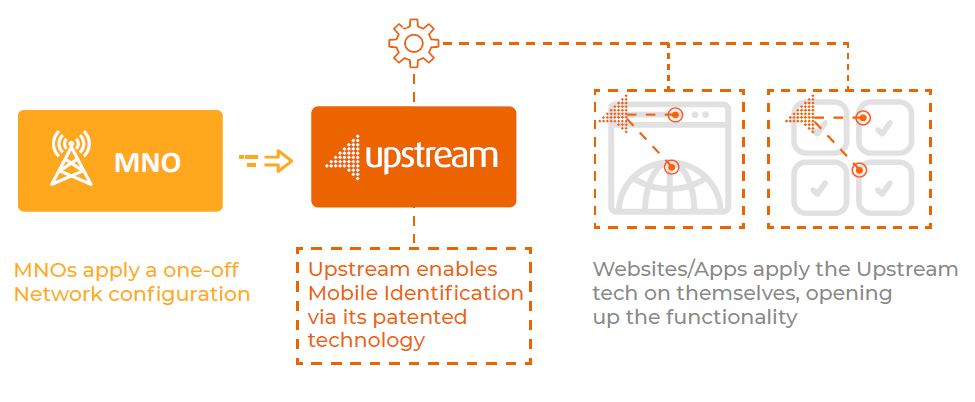The mobile marketing industry is in a state of flux. Third-party cookies have long been seen as a key element for tracking and understanding customer behavior. But they’re being phased out, with over 88% of the browser market set to eliminate them, in a move that’s requiring the industry to evolve.
Third-party cookies: what are they, and what’s changing?
Cookies are packets of data stored on a browser every time a user visits a website. First-party cookies are owned by the publisher of a website and can improve UX by remembering user preferences and settings. Third-party cookies are placed by other organizations and share user data with advertisers, marketers, and other businesses.
Third-party cookies are hugely valuable because they can track visitors and collect data to tailor and target content and ads. But they’re being phased out, driven in part by stringent privacy regulations and GDPR laws[1].
What does this mean for marketers?
Meeting the above requirements comes at a cost. And 44% of marketers predict they will need to increase their spending by up to 25% in the absence of cookies[2].
Marketers and brands will still need to build customer profiles, offer targeted content, and ensure relevant and timely campaigns. Phasing out of third-party cookies means companies will need to find another way to source targeting insights from their mobile-first consumers, not only to achieve their campaign goals but to do so in a way that’s compliant with today’s changing privacy landscape.
Getting first party data right
Why can’t marketers simply migrate to first-party data instead? The answer is simple: it’s not easy to do!
Collecting and managing first-party data efficiently requires a unique combination of technology, processes, tools, and people. This includes heavyweight analytic capabilities to run large data tools, with skilled data experts to cleanse, organize, and make sense of the data. Only then can it become meaningful for helping marketing and sales teams to run campaigns quickly and effectively.
Getting this wrong is not an option. With most customers interacting with a brand multiple times before purchase, a disjointed user experience can cause brands to lose valuable revenues from hot prospects.
A unique opportunity for mobile operators
The phasing out of cookies provides a one-of-a-kind opportunity for mobile operators (MNOs), who are uniquely placed to help businesses that wish to continue delivering personalized targeting and marketing campaigns for customers and prospects.
Serving as the gateway to millions of customers who rely on them to provide access to the internet, MNOs can identify users via their unique MSISDN (mobile number). This positions them perfectly to provide compliant, anonymized insights that allow marketers to serve more relevant content to individual users.
However, getting the technology, systems, and infrastructure in place to build out these capabilities is a major barrier to entry. Telcos’ resources are typically focused on rolling out networks and traffic building management and analytics, customer care, and billing/operations support systems. Launching a capability for compliant first-party data collection could take months and require significant upfront capital investment as well as human resources – headcount, and know-how.
Upstream’s patented new Mobile Identity technology simplifies the collection of first-party data for MNOs. By leveraging the MSISDN, our technology enables mobile operators to help marketers gain insights about the preferences, interests, and needs of mobile users. It is a software-based solution, requiring just a single configuration on the back end, meaning minimum integration effort from the operator. In turn, this enables them to provide customers with relevant, timely, useful content and offers.

A straightforward how-to
The technology is simple, requires users to consent just once, and is fully GDPR (as well as CCPA, LGPD, POPIA etc.) compliant. Instead of downloading apps or logging into web pages, customers just tick a box allowing their data to be shared, and our Mobile Technology does the rest.
With it, businesses gain valuable insights into consumer preferences and can use it to target and retarget specific customers. It also allows seamless user identification across all browsers, websites, and apps, so users don’t have to repeatedly log in or use time-consuming multi-step authentication.
What can businesses do with first-party data?
Through these partnerships with MNOs, businesses can create sophisticated anonymized profiles for each user. This offers the possibility of new revenue streams for MNOs as well as better targeting for businesses, leading to more relevant and useful content for customers.
Businesses can use these insights to build personalized, data-driven campaigns incorporating multiple channels such as e-mail, SMS, and RCS—and reap the rewards.
The opportunity is now
60%[3] of all global internet traffic now comes from mobile phones, and this will keep growing. Yet 88% of web traffic will no longer be tracked by third-party cookies by 2024, and 90%[4] of customers find business messages annoying if they are not personally relevant.
This combination of trends is building to a perfect opportunity for MNOs, who can now carve out a new role in the digital advertising ecosystem. Instead of being ‘pipes’ for others to monetize, they can develop new revenue streams as enablers of personalized, value-added marketing.
Download our white paper to learn more about how Upstream’s Mobile Identity can help MNOs drive new revenue streams.

